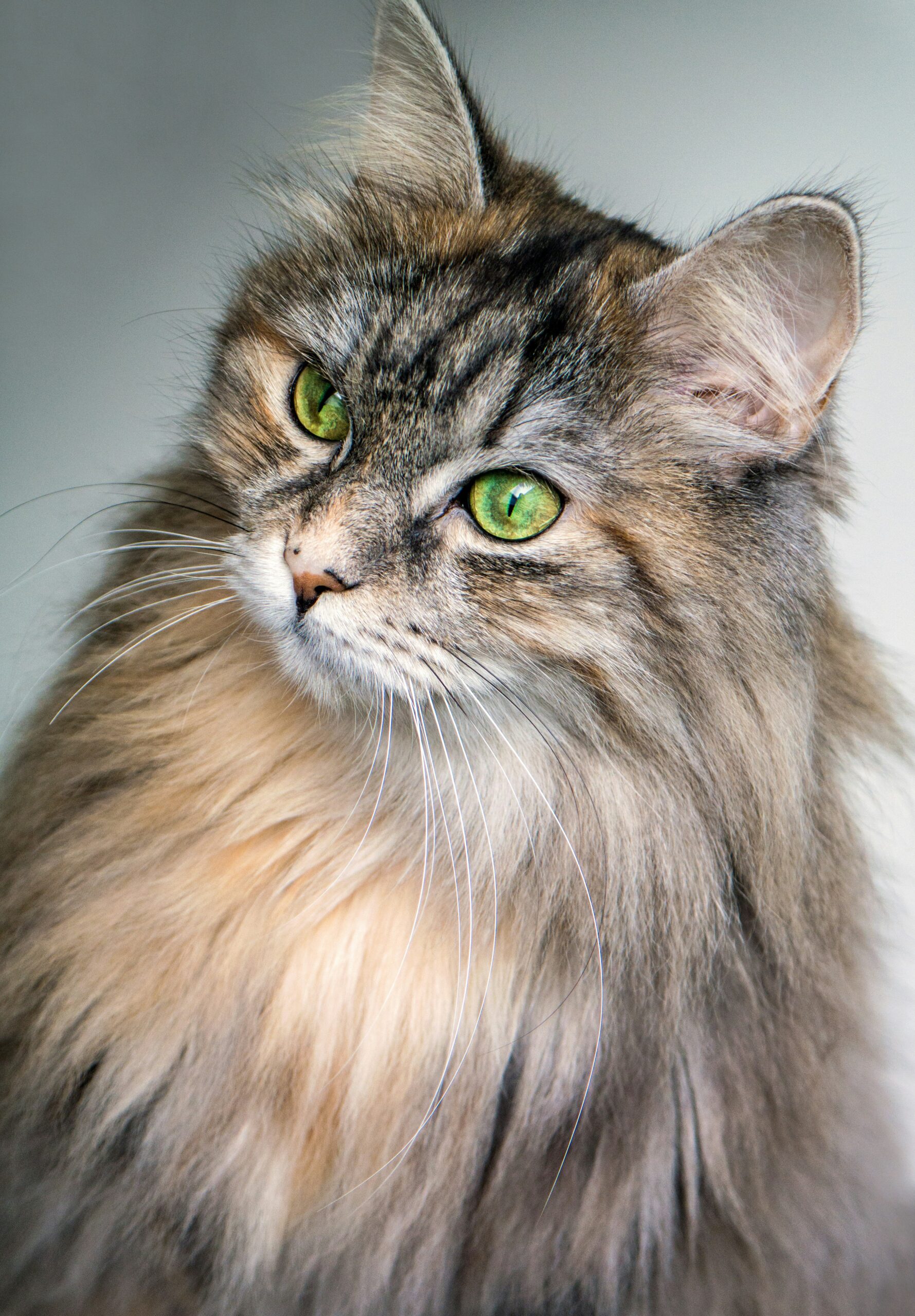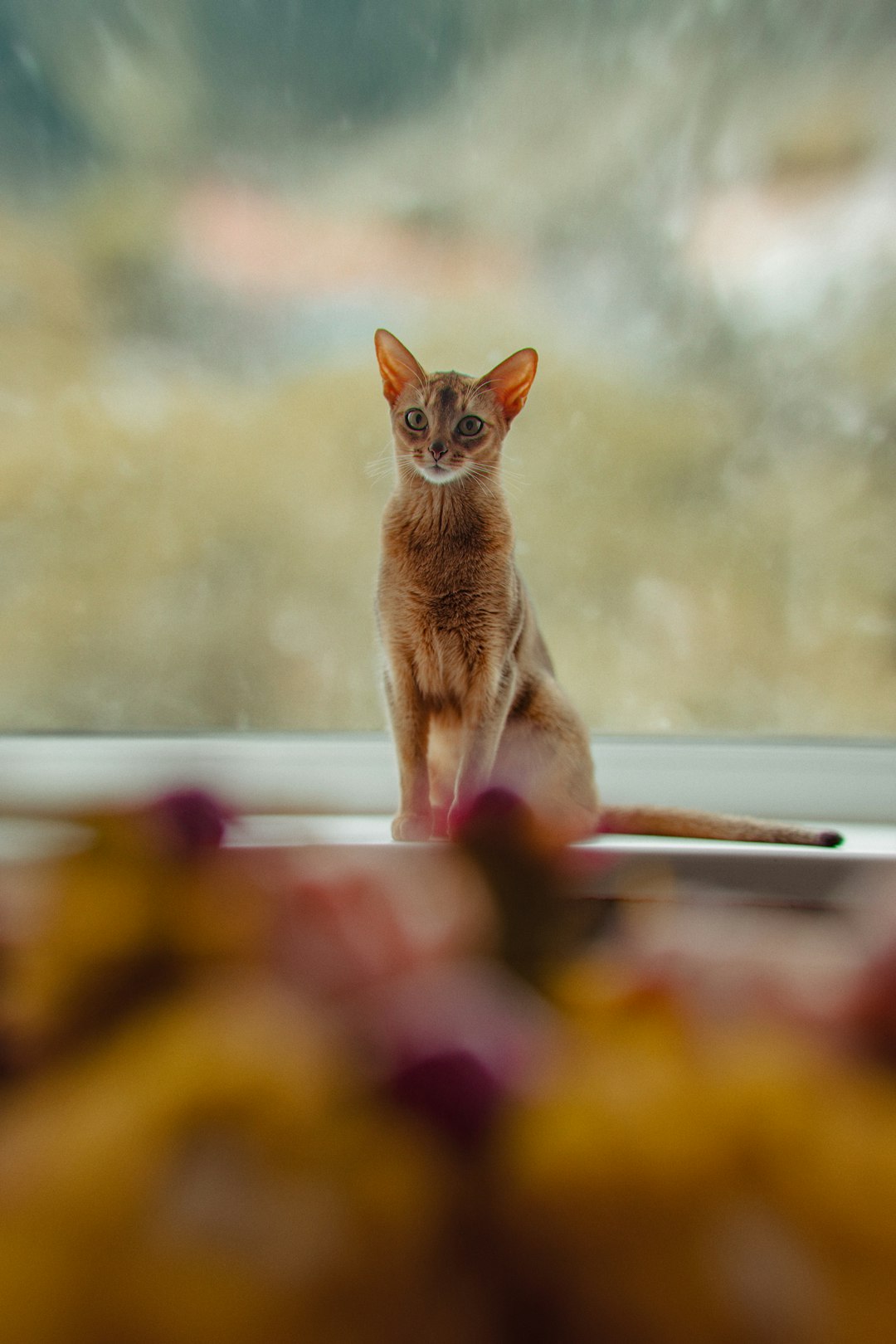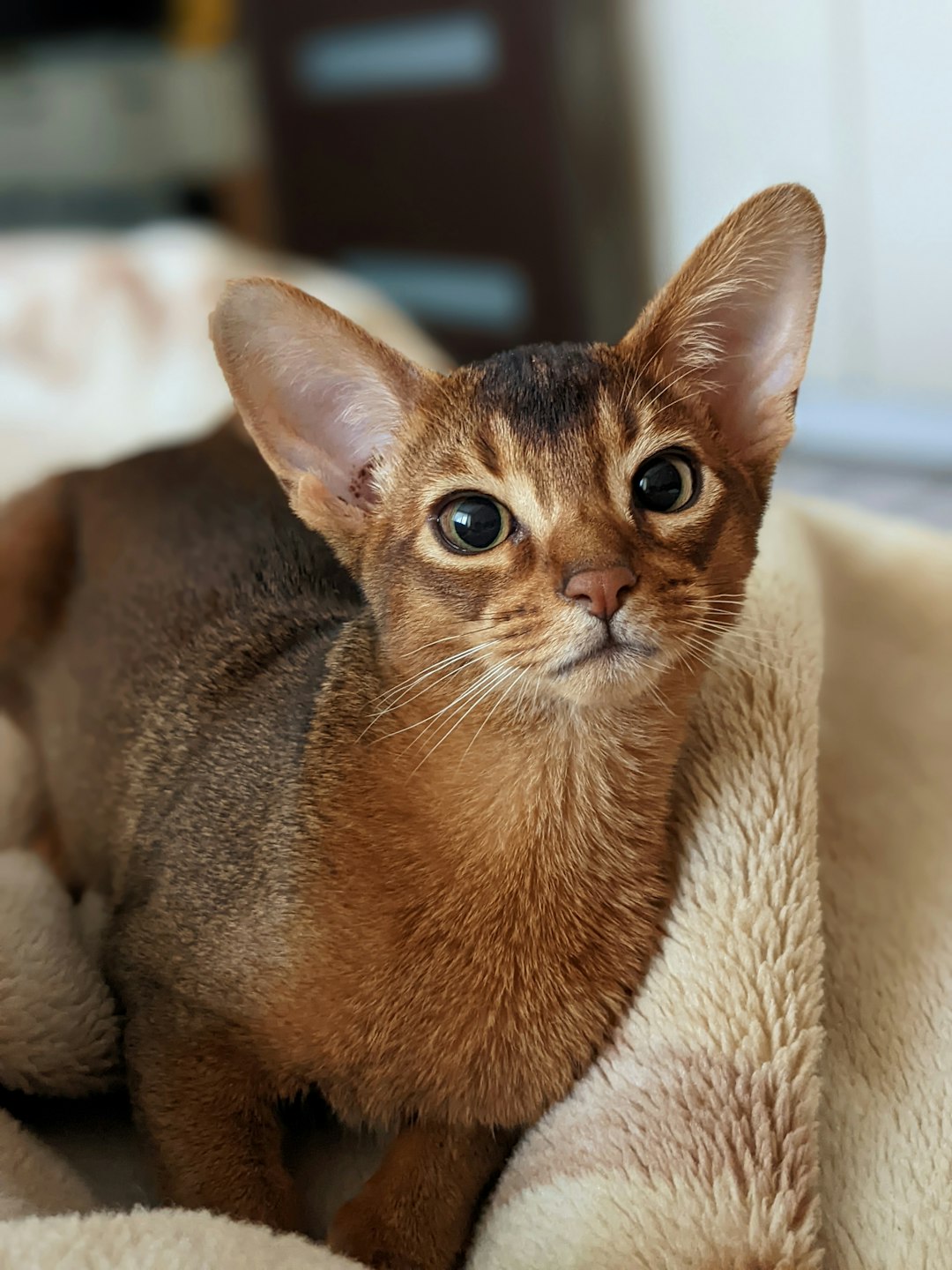If you’re searching for the ultimate family pet, look no further than the charming Maine Coon Cat. With their majestic size and heart-melting personalities, these gentle giants bring a unique blend of playfulness and affection to any household. Originating from the rugged landscapes of New England, they possess not only stunning features but also an incredible temperament that makes them perfect companions for kids and adults alike. So, let’s dive paws-first into the world of Maine Coons and discover why they deserve a prime spot in your family.
Origin and History of Maine Coon Cats
Ah, the Maine Coon Cat! A true legend among feline enthusiasts, its origins are as fascinating as its appearance. This majestic breed hails from the great state of Maine, hence the name, and boasts a rich tapestry of history. Here’s a quick rundown:
- Roots in the Cold Northeastern US: Believed to have developed in the harsh Maine climate, the Maine Coon Cat shines as a prime example of survival of the fittest.
- Myth Meets Reality: Some tales suggest they descended from the long-haired cats of seafarers or even Marie Antoinette’s beloved pets. Whether myth or fact, the stories enhance their charm.
- Natural Selection: These gentle giants were bred for their robust size and dense fur, perfect for the chilly northeast winters!
Ultimately, the Maine Coon Cat became a local treasure, known for its playful disposition and impressive size. As history tells us, they weren’t just cats; they were beloved family members. So, who wouldn’t want to invite a gentle giant like this into their home?
Physical Characteristics of Maine Coon Cats
When it comes to the Maine Coon Cat, these felines truly stand out in the animal kingdom. Here are some of their most striking physical traits that will have you swooning in no time:
- Size: The Maine Coon is one of the largest domesticated cat breeds. Males can weigh between 13-18 pounds, while females typically range from 8-12 pounds. Talk about a gentle giant!
- Fur: Their luxurious, water-repellent fur is a mix of long and short strands, complete with a fluffy ruff around their necks. This “mane” gives them an elegant appearance and keeps them cozy in colder climates.
- Eyes: Maine Coons boast large, expressive eyes that come in various colors—think greens, golds, and coppers. Their eye shape, slightly almond, enhances their majestic look.
- Ears: Topped with tufts resembling a lynx, their ears are not just for show; they help improve hearing, which is an essential skill for these playful hunters.
- Tail: Their long, bushy tails serve as excellent balancing tools, especially when they’re climbing or dashing around the house.
In summary, the Maine Coon Cat combines size, elegance, and an air of regality—perfect for making anyone feel charmed!
Temperament and Personality Traits
When it comes to personality, the Maine Coon Cat is a true charmer! These furballs embody the notion that size matters, especially when it comes to being a gentle giant. Here’s why they make the perfect family member:
- Affectionate: Maine Coons don’t do aloofness. They’re more likely to cuddle up next to you on the couch than hide under the bed.
- Playful: Unleash your inner child! Maine Coons love to engage in playful antics that can entertain the whole family for hours.
- Intelligent: These cats are brainiacs. They enjoy puzzles and games, and they can even learn tricks just like a dog!
- Easygoing: Their calm demeanor makes them excellent companions for children and other pets.
- Vocal: Unlike some cats, Maine Coons express themselves through delightful chirps and trills, making sure you always know what’s on their mind.
In short, Maine Coon Cats are not just pets; they are loving, playful members of the family who know how to bring joy and laughter into your life!
Socialization and Family Dynamics
When it comes to family pets, the Maine Coon Cat stands out as a gentle giant, both in size and temperament. These furry companions not only fit seamlessly into family dynamics but also enhance them! Here’s how:
- Friendly and Adaptable: Maine Coons are social butterflies. They easily adjust to new surroundings, making them perfect for families with children or other pets.
- Affectionate Nature: Unlike more aloof feline friends, a Maine Coon cat will often follow you around, joining family activities as the unofficial mascot.
- Interactivity: Want a pet that plays hide-and-seek? A Maine Coon cat loves engaging with family members, whether it’s through playful pouncing or gentle wrestling.
- Gentle Giants: Their larger size doesn’t make them a bully; rather, they exhibit a calm demeanor, making them excellent playmates for little ones.
| Trait | Maine Coon Cat | Other Cat Breeds |
|---|---|---|
| Social Nature | Highly social | Varies |
| Affection Level | Very affectionate | Less consistent |
| Playfulness | Extremely playful | Often distant |
In summary, if you’re searching for a loving and playful family companion, the Maine Coon Cat may just be your purr-fect match!
Grooming and Care Requirements for Maine Coon Cats
Caring for your Maine Coon Cat is a delightful adventure filled with cuddles and grooming sessions. This gentle giant’s luxurious fur requires some attention, but don’t worry; it’s a labor of love! Here’s what you need to know:
Grooming Essentials:
- Brush Regularly: Aim for 1-2 times a week. Their thick fur can mat easily, and it’s best to tackle it before you need a rescue mission.
- Bathing: While they are generally good at self-grooming, a bath every few months will keep the Maine Coon Cat fresh and fabulous!
- Nail Trimming: Trim their claws every 2-4 weeks. It’s a must for preventing damage to your furniture… and you!
- Ear Cleaning: Check their ears weekly for excess wax and dirt — the Maine Coon Cat earns its stripes as a feline aristocrat.
Health Care:
- Regular Vet Visits: Keep up with vaccinations and health check-ups. Maine Coons can be prone to certain genetic conditions, so proactive care is wise.
In summary, grooming a Maine Coon Cat is crucial, yet with the right approach, it becomes an enjoyable bonding experience for both of you!
Health Considerations for Maine Coons
When you invite a Maine Coon Cat into your family, you’re also signing up for a health journey together. These gentle giants are generally hardy, but like all pets, they have some unique health considerations to keep in mind. Here’s a handy list of what to watch:
- Hypertrophic Cardiomyopathy (HCM): A common condition in Maine Coons, this heart disease can lead to serious complications. Regular vet check-ups can help catch it early.
- Hip Dysplasia: Maine Coons are prone to hip issues due to their large size. Watch for signs like limping or reluctance to jump.
- Spinal Muscular Atrophy (SMA): While SMA is not life-threatening, it can lead to mobility challenges. Consult your vet for guidance.
In summary, while your Maine Coon Cat will bring endless joy, remember to be proactive about their health. Regular vet visits, a balanced diet, and an active lifestyle can help your furry friend thrive. After all, a happy Maine Coon cat equals a happy family!
Training Your Maine Coon Cat
Training your Maine Coon Cat may sound like a lofty endeavor, but fear not! This gentle giant thrives on mental stimulation and connection with you. Let’s break it down:
- Start Early: The earlier you begin, the easier it gets. Maine Coons are naturally inquisitive, so introduce them to training as kittens.
- Positive Reinforcement: Reward good behavior with treats or praise. Maine Coons respond best to encouragement rather than scolding.
- Basic Commands: Focus on essential commands like “sit,” “stay,” and “come.” You’ll be impressed by how quickly they grasp these concepts.
- Consistency is Key: Keep your training sessions short and regular. Maine Coons can get easily distracted, so stick to about 5-10 minutes daily.
- Socialization: Expose your Maine Coon to new environments and people. This helps them become well-adjusted family members.
In comparison to other breeds, Maine Coons often exhibit a remarkable ability to learn tricks and tasks. With the right approach, you’ll have a well-trained Maine Coon Cat that’s not just a pet, but a delightful companion for your family!
Choosing the Right Maine Coon Cat for Your Family
Picking a Maine Coon Cat is a little like choosing a new family member—only furrier! Here are some essential tips to ensure you adopt the right furry friend for your household:
- Consider Age:
- Kittens: Full of energy and mischief!
- Adults: Usually calmer and sometimes trained.
- Temperament:
- Sweet-natured, playful, affectionate; Maine Coons are perfect cuddle buddies!
- Size:
- These gentle giants can weigh up to 25 pounds! Make sure you’ve got enough space for their majestic presence.
- Activity Level:
- Maine Coons love to play! Ensure you have time and energy for interactive toys, climbing towers, and plenty of head scratches.
- Allergies:
- While considered low-shedding, if your family has allergies, spend time with a Maine Coon beforehand.
In summary, when choosing a Maine Coon Cat for your family, think about your lifestyle, space, and the joyful chaos this gentle giant will bring into your home!
Activities and Playtime with Maine Coons
When it comes to playtime, the Maine Coon Cat is not just a simple house cat; it’s a fur-covered bundle of joy waiting to unleash its playful spirit! Here are some delightful activities that will keep your fluffy friend entertained and complement their social nature:
- Interactive Toys: Invest in feather wands and laser pointers. Maine Coons love to chase and stalk like the majestic felines they are!
- Puzzle Feeders: Keep their minds sharp with toys that dispense treats. Not only does it engage their brains, but it also satisfies their hunting instinct.
- Climbing Trees: A climbing tree or cat condo provides a perfect playground for these high-flying fur balls. Watch them lounge in their kingdom!
- Water Play: Believe it or not, many Maine Coons enjoy splashing around. A shallow water dish or a running faucet can be endlessly entertaining for them.
In summary, your Maine Coon Cat will thrive with interactive play that stimulates both body and mind. So, stock up on toys and prepare for countless hours of joy with your gentle giant!
Maine Coons and Allergy Considerations
Ah, the age-old question: can you enjoy the fluffiness of the Maine Coon Cat without sneezing your way through family movie night? The good news is that while no cat is completely hypoallergenic, many people with allergies find the Maine Coon Cat to be more tolerable. Here’s why:
- Lower Fel D 1 Levels: This protein found in cat saliva can trigger allergies. Maine Coons, while not allergy-free, tend to produce less of it.
- Fur & Dander: Their thick, water-repellent fur helps trap dander, reducing the amount floating around your house.
- Regular Grooming: Keeping your Maine Coon Cat well-groomed with a consistent brushing schedule can minimize shedding and dander.
Allergy Comparison Table
| Cat Breed | Hypoallergenic Level | Grooming Needs | Fur Length |
|---|---|---|---|
| Maine Coon Cat | Moderate | High | Long |
| Siamese | Low | Low | Short |
| Bengal | Moderate | Moderate | Short |
Ultimately, if you choose to welcome a Maine Coon Cat into your home, consider investing in air purifiers and sticking to a rigorous cleaning routine. With a little extra effort, allergies don’t stand a chance against this gentle giant!
Frequently Asked Questions
Are Maine Coon cats really as big as they say?
Oh, you bet they are! Maine Coons are like the gentle giants of the cat world, often tipping the scales between 10 to 25 pounds or more. While they won’t exactly carry your groceries, their extensive fluff and impressive size will surely make you feel like you have a small dog lounging on your lap. Just imagine that cozy, fuzzy, furry friend sprawled across your couch—definitely a scene worth capturing!
Do Maine Coons get along well with kids and other pets?
Absolutely! Maine Coons are famously known for their easy-going temperament and sociable nature. They thrive on companionship and can often be found cozying up to children, other cats, or even dogs. Just picture this: a playful Maine Coon chasing after a toddler’s toys while another snuggles next to an unsuspecting pup. They’re like the peacekeeping ambassadors of the pet world, making them fantastic additions to any family!
Are Maine Coons hypoallergenic?
Not quite! While Maine Coons do produce less Fel d 1 protein (the allergenic culprit in our feline friends), they are not considered hypoallergenic. So, while your allergies might not completely revolt when a Maine Coon is around, they might still send you into a sneezing fit. It’s a classic case of ‘cute but not quite allergy-proof,’ so expect some sniffling amidst all that purring joy!
How much grooming do Maine Coons need?
Maine Coons have beautiful, luscious fur that certainly attracts attention, but it does require commitment! Think of it as a part-time job that comes with cuddles. Regular grooming at least twice a week will help minimize matting and help you assess whether your beloved giant has picked up any peculiar ‘fashion accessories’ (also known as dirt or leaves). With a little dedication, you can keep your Maine Coon’s coat looking regal!



